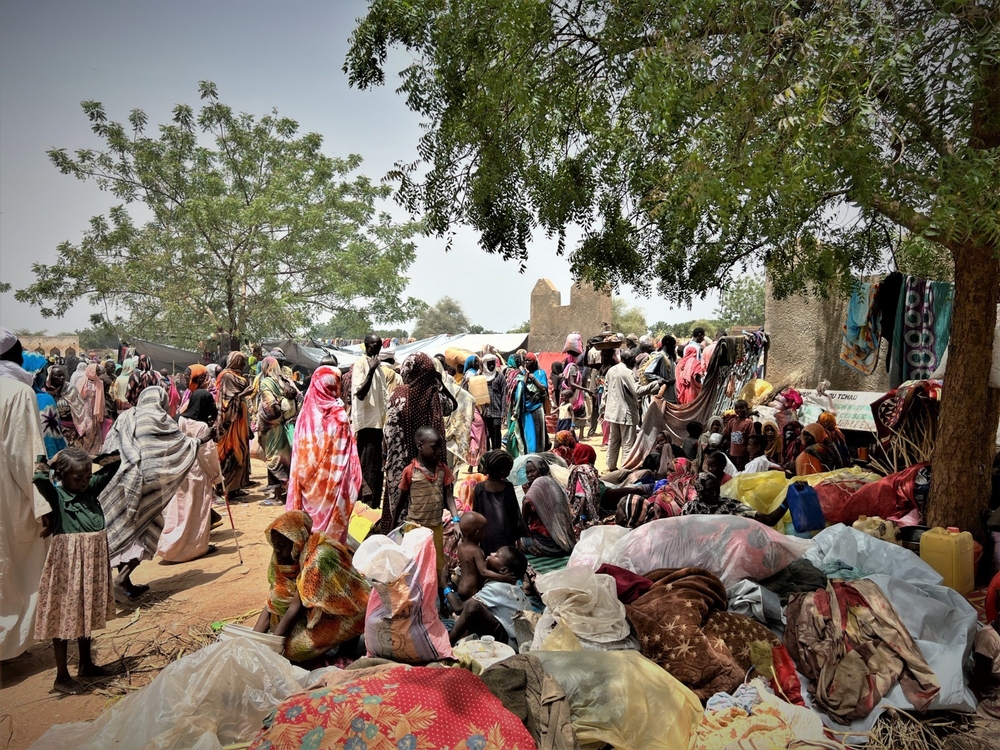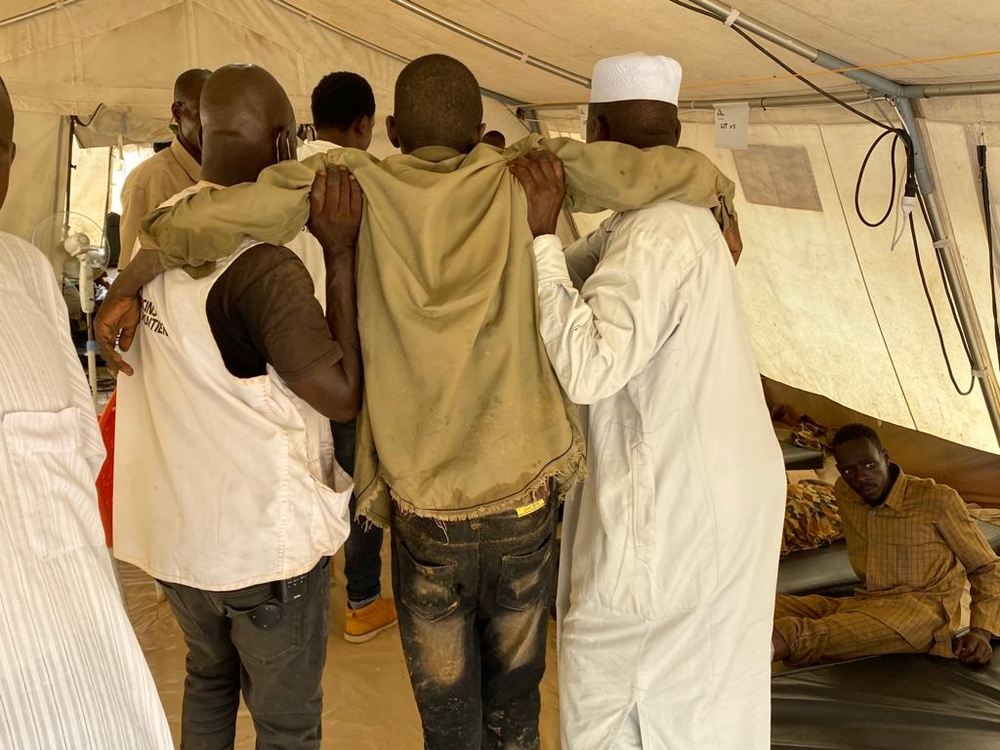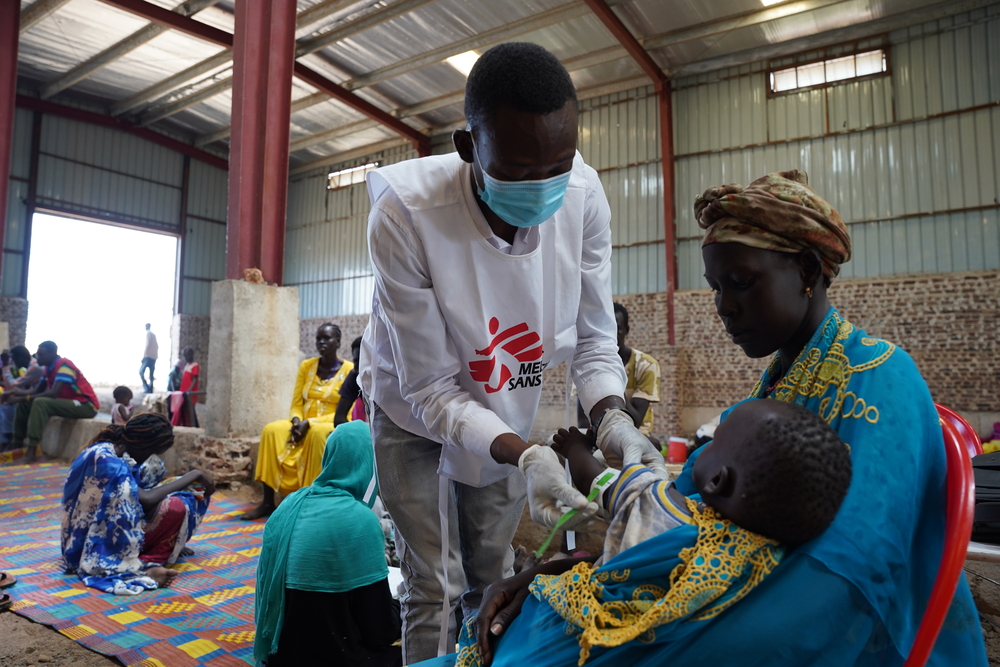MSF assistance to hundred thousands of people fleeing Sudan to neighbouring countries

Since the escalation of violence in Sudan, MSF has been working in 12 states: Khartoum, Kassala, Al-Jazeera, West Darfur, North Darfur, Central Darfur, South Darfur, Red Sea, El-Gedaref, Blue Nile, White Nile, and River Nile. We continue to adapt and scale up our emergency response in areas we are able to access to address the most acute humanitarian and medical needs in an impartial manner and to the best of our abilities. Here is the MSF response to people fleeing Sudan to neighbouring countries:

Chad
It is estimated that over 150,000 people have fled to Chad (IOM) since the start of the current conflict in Sudan. This includes at least 15,000 Sudanese refugees from West Darfur’s capital, El Geneina, and its surroundings, who have reached the town of Adre. Here, MSF treated over 900 wounded people in the space of just four days (from June 16-19) who reached its hospital in the city. Patients consistently told our teams that they had been shot at – and that they had witnessed many being killed – as they fled El Geneina.
In addition to surgical care for the war wounded, we also support the paediatric and nutrition wards and health centres around Adré. Newly arrived refugees are coming at a time when malaria and malnutrition are reaching extremely high levels in the region with the onset of the rainy season and the hunger gap. We run mobile clinics, vaccinations, malnutrition screening, referrals and other activities in temporary refugee camps in Ouaddaï province and we are opening a second project to provide medical care in the newly built refugee camp in Arkoum.
According to UNHCR, most refugees and returnees are arriving in Ouaddai province, but also in Sila and Wadi Fira provinces. These three provinces were already hosting the majority of refugees in Chad, with more than 400,000 Sudanese refugees settled in eastern Chad prior to the eruption of the recent violence, often in overcrowded camps with inadequate sanitation facilities and shrinking access to food assistance (WFP) in a region gripped by food insecurity, child malnutrition and recurrent preventable outbreaks.
MSF started an emergency project in cooperation with health authorities in Sila region, near the Chad-Sudan border. Through mobile clinics, our teams are providing medical and preventative care to Sudanese refugees, Chadian returnees and host communities. Services include the screening and treatment of acute malnutrition in children, sexual and reproductive healthcare, and referrals to the MSF-supported Daguessa health centre or to Koukou hospital for secondary healthcare. Although support to Daguessa health centre continues, MSF teams have not been able to access the affected communities in the two mobile clinic sites of Andressa and Mogororo since June 12 due to the onset of the rainy season and consequent floods. The situation in Sila and other eastern regions remains very fluid, and the humanitarian situation remains critical. MSF is currently adapting its medical programmes to be able to reach communities who have been left without access to vital medical care.
CAR
According to the UN, more than 13,800 people fleeing the conflict in Sudan have arrived since the end of April at the prefecture of Vakaga, in the north of the Central African Republic (CAR). Most are Sudanese, but some are Central Africans too. The majority of the Sudanese refugees are still settled in a camp at the border town of Am Dafok. Since early May local authorities have transported around 850 refugees further south, to the town of Birao, the capital of Vakaga, where access is easier for humanitarian organisations. MSF’s intervention is focused in Birao, where we are providing paediatric care and vaccinations at a health post in a camp and supplying water through daily distributions. We are also working in the local hospital to ensure continuity of the primary care we are providing at the displacement site. More than 80 per cent of refugees are women and children, as many men have stayed behind to fight. Many of the children are ill because of the difficult conditions. In medical consultations, we have already seen several cases of severe acute malnutrition.
South Sudan
Since April, over a hundred thousand people have fled the Sudan conflict to seek safety in South Sudan. Most of them are South Sudanese. They are arriving at the borders exhausted and vulnerable after long and dangerous journeys; some robbed on the way. In Renk and Aweil which have received 85 per cent of these returnees, thousands of individuals including women and children are stranded at the transit sites with very limited shelter, food, water, sanitation and healthcare facilities.
MSF has launched emergency responses in Upper Nile and Northern Bahr El Ghazal states, running three mobile clinics in Renk and one in Aweil, offering primary healthcare services. In Renk where most of the returnees are arriving, our teams are treating river water to ensure safe drinking water for the displaced population and setting up an isolation ward for measles patients in the county hospital. In Aweil, our teams are doing around 100 consultations per day. Many patients have respiratory infections and acute watery diarrhoea, and we are seeing increasing cases of malnutrition.






Leave a Comment